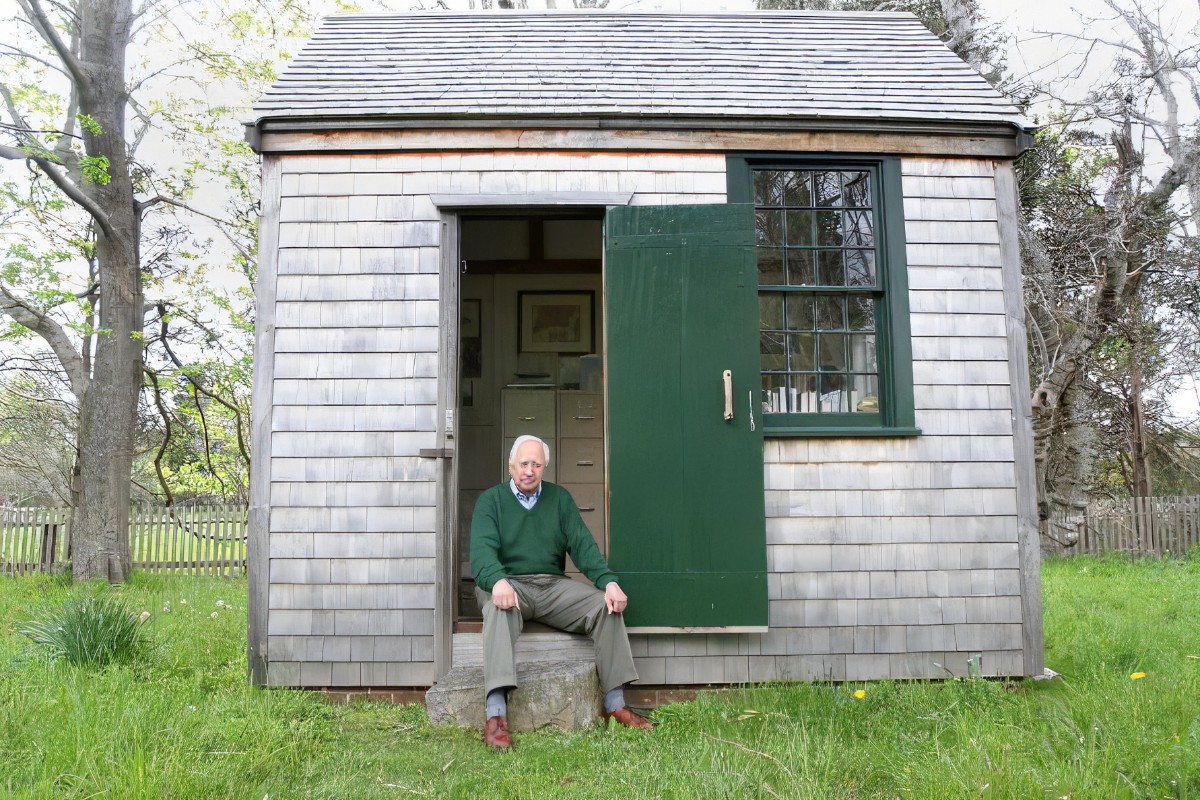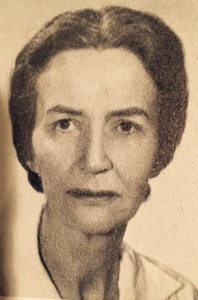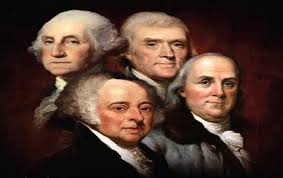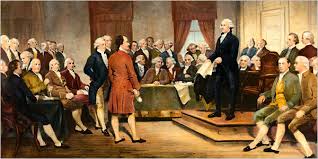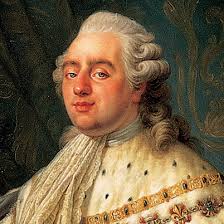By Suzanne Sparrow Watson
Ten years ago, Bob and I changed the format of this blog from a poem-inspired take on the news to its current form of writing a narrative about anything that strikes our fancy. Some columns have been better than others, but to our credit, in those ten years we have posted something every Monday morning without fail. We both were inspired and encouraged to write by very good teachers. So, besides our genes and love for college football, we share one other trait: we both love to write. I say that with some trepidation as one of my favorite writers, Fran Lebowitz, once said, “Anyone who says they love to write is generally not very good at it.”
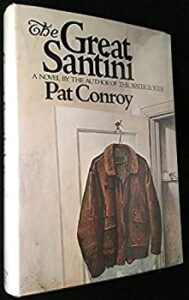 Bob and I will occasionally have conversations about books and authors that we love. One author we both admired was Pat Conroy. We waited anxiously for each new book he wrote and then discussed how it compared to his previous tomes. From The Water is Wide, to The Great Santini, from The Prince of Tides to Beach Music, Conroy took us on a voyage, sometimes wrenching, but always exquisitely written. We were devasted when he died in 2016 at age 70 from pancreatic cancer. No one since has been able to match his ability to take readers on a painful journey, yet enjoy the ride.
Bob and I will occasionally have conversations about books and authors that we love. One author we both admired was Pat Conroy. We waited anxiously for each new book he wrote and then discussed how it compared to his previous tomes. From The Water is Wide, to The Great Santini, from The Prince of Tides to Beach Music, Conroy took us on a voyage, sometimes wrenching, but always exquisitely written. We were devasted when he died in 2016 at age 70 from pancreatic cancer. No one since has been able to match his ability to take readers on a painful journey, yet enjoy the ride.
This week we lost another of my literary heroes, David McCullough. If you are a history fan you may have read his best-selling biographies of Truman and John Adams. But McCullough was more than a presidential historian; he had a wide-ranging scope of interest that led him to write about topics as varied as the Panama Canal and the Brooklyn Bridge. For those of you who have never read one of his books (really, you need to put that on your bucket list), you may be familiar with his baritone voice narrating Ken Burn’s documentary, The Civil War, the PBS show The American Experience, or the movie, Seabiscuit. McCullough had a unique ability to ferret out interesting stories of previously unknown people and weave them into the type of book that is hard to put down. He made American history both exciting and interesting.
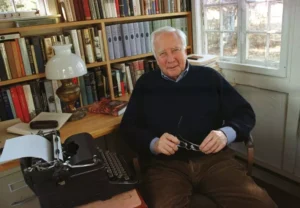 I loved every one of his books, but I was also intrigued his typewriter and writing shed. McCullough wrote all of his books on a 1941 Royal Standard typewriter, which he bought second-hand for $25 in 1964. He thought it was quite an investment at the time but surmised that if he was going to be in the business of writing he needed to have good equipment at home. He continued to use it for all of his books, long after computers made writing, and re-writing, faster. When asked why he didn’t make the switch to more modern technology he said, “I love putting paper in. I love the way the keys come up and actually print the letters. I love it when I swing that carriage and the bell rings like an old trolley car. I love the feeling of making something with my hands. People tell me if I used a computer, I could go so much faster. Well, I don’t want to go faster. If anything, I should go slower. I don’t think all that fast.”
I loved every one of his books, but I was also intrigued his typewriter and writing shed. McCullough wrote all of his books on a 1941 Royal Standard typewriter, which he bought second-hand for $25 in 1964. He thought it was quite an investment at the time but surmised that if he was going to be in the business of writing he needed to have good equipment at home. He continued to use it for all of his books, long after computers made writing, and re-writing, faster. When asked why he didn’t make the switch to more modern technology he said, “I love putting paper in. I love the way the keys come up and actually print the letters. I love it when I swing that carriage and the bell rings like an old trolley car. I love the feeling of making something with my hands. People tell me if I used a computer, I could go so much faster. Well, I don’t want to go faster. If anything, I should go slower. I don’t think all that fast.”
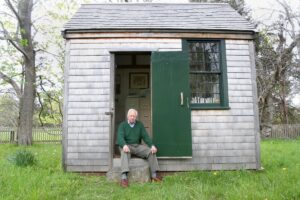 McCullough’s writing shed, which he referred to as “the bookshop”, might be the envy of anyone who writes, crafts, or simply wants to spend time alone. It measures eight-by-10 feet. There is no telephone or running water. Its walls are lined with more than 1,000 books, and the only furniture is a desk, a comfortable chair, and a lamp. He often said, “Nothing good was ever written in a large room.” McCullough started writing in the shed when his children were young because he didn’t want them to have to tip-toe around the house when he was writing. Each morning he repaired to the shed for peace and quiet and from that tiny enclave, some of the best chronicling of American history was crafted.
McCullough’s writing shed, which he referred to as “the bookshop”, might be the envy of anyone who writes, crafts, or simply wants to spend time alone. It measures eight-by-10 feet. There is no telephone or running water. Its walls are lined with more than 1,000 books, and the only furniture is a desk, a comfortable chair, and a lamp. He often said, “Nothing good was ever written in a large room.” McCullough started writing in the shed when his children were young because he didn’t want them to have to tip-toe around the house when he was writing. Each morning he repaired to the shed for peace and quiet and from that tiny enclave, some of the best chronicling of American history was crafted.
I will miss the anticipation of a new McCullough book, just as I have mourned the loss of any further works from Conroy. A counterpoint to Ms. Lebowitz, they both loved writing and were thrilled that they attracted a large legion of followers. How lucky we are that such writers engaged us with stories of fact and fiction. We will not see the likes of them again.
